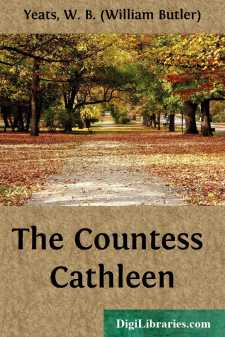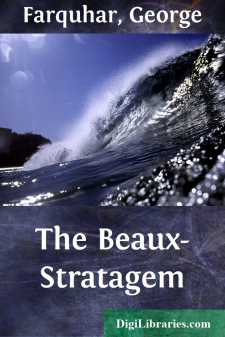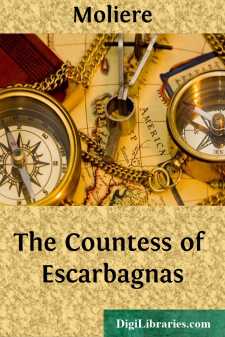Drama Books
Sort by:
ACT I. Scene: Within the tent of Menones, on the plain before Nineveh. Left, centre, entrance to tent from the plain. Curtains rear, forming partition with exits right and left of centre. The same at right, with one exit, centre. Couch rear, between exits. From a tent-pole near exit, right centre, hang helmet and a suit of chain armor. Sola parts curtains rear, left, and looks out, showing effort to...
more...
SCENE 1 SCENE—A room with lighted fire, and a door into the open air, through which one sees, perhaps, the trees of a wood, and these trees should be painted in flat colour upon a gold or diapered sky. The walls are of one colour. The scene should have the effect of missal Painting. MARY, a woman of forty years or so, is grinding a quern. MARY. What can have made the grey hen flutter so? (TEIG, a boy...
more...
by:
Michael Strange
Act I Scene 1 [An old park with avenues of trees leading away in all directions. Directly in background of stage there is a sheet of water fringed by willow and poplar trees. On the right and left is a high box hedge formed in curves with the top clipped in grotesque shapes mostly of birds. A statue is placed in the centre of each hedge, and beneath the statues are seats. When the curtain rises several...
more...
by:
George Meredith
ON THE IDEA OF COMEDY AND OF THE USES OF THE COMIC SPIRIT Good Comedies are such rare productions, that notwithstanding the wealth of our literature in the Comic element, it would not occupy us long to run over the English list. If they are brought to the test I shall propose, very reputable Comedies will be found unworthy of their station, like the ladies of Arthur’s Court when they were reduced...
more...
by:
George Farquhar
PREFACE The Author. 'It is surprising,' says Mr. Percy Fitzgerald, 'how much English Comedy owes to Irishmen.' Nearly fifty years ago Calcraft enumerated eighty-seven Irish dramatists in a by no means exhaustive list, including Congreve, Southerne, Steele, Kelly, Macklin, and Farquhar—the really Irish representative amongst the dramatists of the Restoration, the true prototype of...
more...
by:
Moliere
SCENE I.—JULIA, THE VISCOUNT. Visc. What! you are here already? Ju. Yes, and you ought to be ashamed of yourself, Cléante; it is not right for a lover to be the last to come to the rendezvous. Visc. I should have been here long ago if there were no importunate people in the world. I was stopped on my way by an old bore of rank, who asked me news of the court, merely to be able himself to detail to...
more...
by:
Bronson Howard
BRONSON HOWARD (1842-1908) The present Editor has just read through some of the vivacious correspondence of Bronson Howard—a sheaf of letters sent by him to Brander Matthews during a long intercourse. The time thus spent brings sharply to mind the salient qualities of the man—his nobility of character, his soundness of mind, his graciousness of manner, and his thorough understanding of the dramatic...
more...
INTRODUCTION TO SARDANAPALUS Byron's passion or infatuation for the regular drama lasted a little over a year. Marino Faliero, Sardanapalus, and the Two Foscari, were the fruits of his "self-denying ordinance to dramatize, like the Greeks ... striking passages of history" (letter to Murray, July 14, 1821, Letters, 1901, v. 323). The mood was destined to pass, but for a while the neophyte...
more...
by:
Oscar Wilde
PROLOGUE. Scene.—A Russian Inn. Large door opening on snowy landscape at back of stage. Peter Sabouroff and Michael. Peter (warming his hands at a stove). Has Vera not come back yet, Michael? Mich. No, Father Peter, not yet; 'tis a good three miles to the post office, and she has to milk the cows besides, and that dun one is a rare plaguey creature for a wench to handle. Peter. Why didn't...
more...
THE CHARACTERS GODS:MADANA (Eros).VASANTA (Lycoris). MORTALS:CHITRA, daughter of the King of Manipur.ARJUNA, a prince of the house of the Kurus. He is of theKshatriya or "warrior caste," and during the action is living asa Hermit retired in the forest. VILLAGERS from an outlying district of Manipur. NOTE.—The dramatic poem "Chitra" has been performed in Indiawithout scenery—the...
more...











